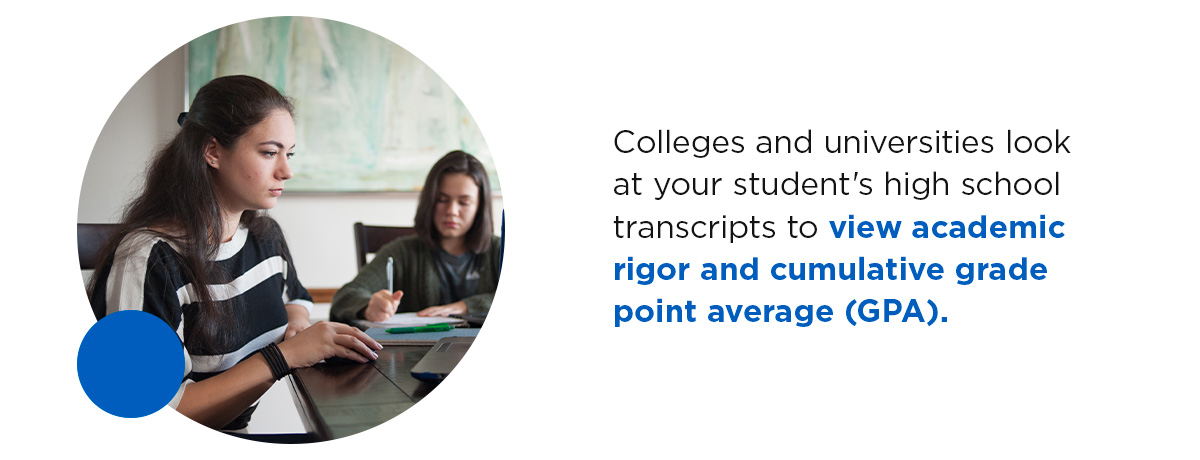Enrollment Now Open for Second Semester. Click Here
Enrollment Now Open for Second Semester. Click Here


No matter their educational level, your child’s grades are essential. They show how well your child understands course materials and their current skill level. Lower scores identify areas for improvement, while high grades show mastery of particular concepts.
As your child progresses further into their education, it’s common to consider how their academic performance affects their college or university application. Student educational records can predict future success, but older grade levels are more critical for college admissions than younger ones. Let’s take a closer look at how elementary school grades impact college and university acceptances.
Elementary school grades are important indicators of your child’s learning. They reflect how well your student can comprehend and hold onto information. These early school years teach kids crucial skills, like:
It’s crucial to remember elementary school is kids’ first time in a formal educational setting. Their grades show how well they adapt to their new environment but aren’t firm indicators of future academic success. Elementary students are still developing study strategies and learning school structures, so perfect grades aren’t necessary. In addition, lower grades won’t impact scholarships or awards in this early learning period.
However, elementary school grades are vital for seeing your child’s progress. You should still encourage good grades and use report cards to pinpoint areas of improvement.
Colleges don’t look at elementary school grades during the admissions process. Instead, they value high school records because it’s the most recent educational experience before college. Elementary school occurs many years before college — the time in between is crucial for educational and personal development. Kids might struggle in early education but build the academic skills they need over time. Because of the significant time difference, elementary school grades don’t affect your child’s college application.
Even though universities don’t view early grades, valuing them is still important. Learning the value of school in elementary years can prepare kids to succeed later.

Colleges and universities look at your student’s high school transcripts to view academic rigor and cumulative grade point average (GPA). Students usually submit a transcript with their college application, allowing admissions officers to view grades in each class. In particular, universities value students’ 11th-grade transcripts. Their junior year is the last complete year of school before they apply to college, giving a crucial glimpse into average academic performance.
Admissions officers want to see that students took core classes, including:
Honors or Advanced Placement (AP) classes give another leg up — they show universities and colleges that students are prepared for college-level assignments.
In addition, they view student electives to learn more about student interests and possible career paths. Having high grades in these courses shows hard work and determination.
Other important admissions advice — admissions officers look for more than grades. Higher education institutions want well-rounded students who can contribute to their educational environment. In addition to your child’s transcripts, they might look for:
The exact requirements vary depending on your specific college. As your student browses which college suits them best, they can learn more about the classes or other involvements to include on their application.
Your child’s elementary school experience is crucial to their early development. CCA offers a high-quality online elementary school program. We take a personalized and flexible approach to learning, ensuring each student has the tools they need for success.
Elementary-aged students need a lot of support from teachers and families. At CCA, we prioritize helping students by designating learning coaches and offering Family Service Centers. Learning coaches track students’ progress closely, monitoring coursework and helping with assignments. Virtual courses are tailored to meet student needs and interests. All of our teachers and staff prioritize communication and send frequent updates about student grades and progress.
We set apart from other schools with features like:
At CCA, we understand the importance of transformative education. Your child’s early educational experiences will prepare them to succeed in future endeavors like college admissions. To get started with CCA, request more information or enroll online today.
Enrollment Now Open for Second Semester. Click Here